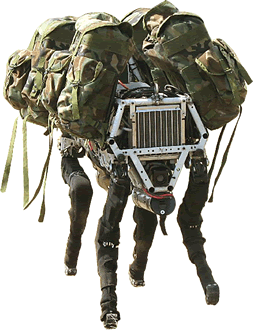Difference between revisions of "Miscellaneous Multimedia"
(→History of Computers) |
(→Tools) |
||
| Line 76: | Line 76: | ||
==Tools== | ==Tools== | ||
| + | <!-- | ||
* [http://www.downloadyoutubevideos.com downloadyoutubevideos.com]: reliable system to download YouTube videos | * [http://www.downloadyoutubevideos.com downloadyoutubevideos.com]: reliable system to download YouTube videos | ||
| + | --> | ||
Revision as of 06:02, 29 September 2008
<meta name="keywords" content="computer science, dominique Thiebaut, smith college, history of computers, video" /> <meta name="description" content="Dominique Thiebaut's Web Page" /> <meta name="title" content="Dominique Thiebaut -- Computer Science" /> <meta name="abstract" content="Dominique Thiebaut's Computer Science Web pages" /> <meta name="author" content="thiebaut at cs.smith.edu" /> <meta name="distribution" content="Global" /> <meta name="revisit-after" content="10 days" /> <meta name="copyright" content="(c) D. Thiebaut 2000, 2001, 2002, 2003, 2004, 2005, 2006, 2007,2008" /> <meta name="robots" content="FOLLOW,INDEX" />
Videos
Design
- Design and the Elastic Mind, a Charlie Rose interview with Paula Antonelli, curator of the MoMA exhibit of the same name.
Robotics
- BigDog: A video of BigDog, the alpha male of the Boston Dynamics family of robots. More videos can be found at www.bostondynamics.com
History of Computers
- Charles Babbage and his Difference Engine
- History of computing: A quick overview of the history of computers, mentioning Zuse, Ibm, Bill Gates, Steve Wozniack, Steve Jobs.
- The history of Computers, Part I
- Computer History: A nice coverage, starting with Babbage, and mentioning Atanasof, Colossus, Zuse, Eniac, Apple I, IBM, Altair, Radio Shack TRS80.
- When computers were human, by David Grier. First 45 minutes provide nice coverage of the human side of computing.
Excerpt from http://press.princeton.edu/titles/7999.html:
- Before Palm Pilots and iPods, PCs and laptops, the term "computer" referred to the people who did scientific calculations by hand. These workers were neither calculating geniuses nor idiot savants but knowledgeable people who, in other circumstances, might have become scientists in their own right. When Computers Were Human represents the first in-depth account of this little-known, 200-year epoch in the history of science and technology.
- Beginning with the story of his own grandmother, who was trained as a human computer, David Alan Grier provides a poignant introduction to the wider world of women and men who did the hard computational labor of science. His grandmother's casual remark, "I wish I'd used my calculus," hinted at a career deferred and an education forgotten, a secret life unappreciated; like many highly educated women of her generation, she studied to become a human computer because nothing else would offer her a place in the scientific world.
- YouTube's Selection of Computer History videos. Great stuff!





